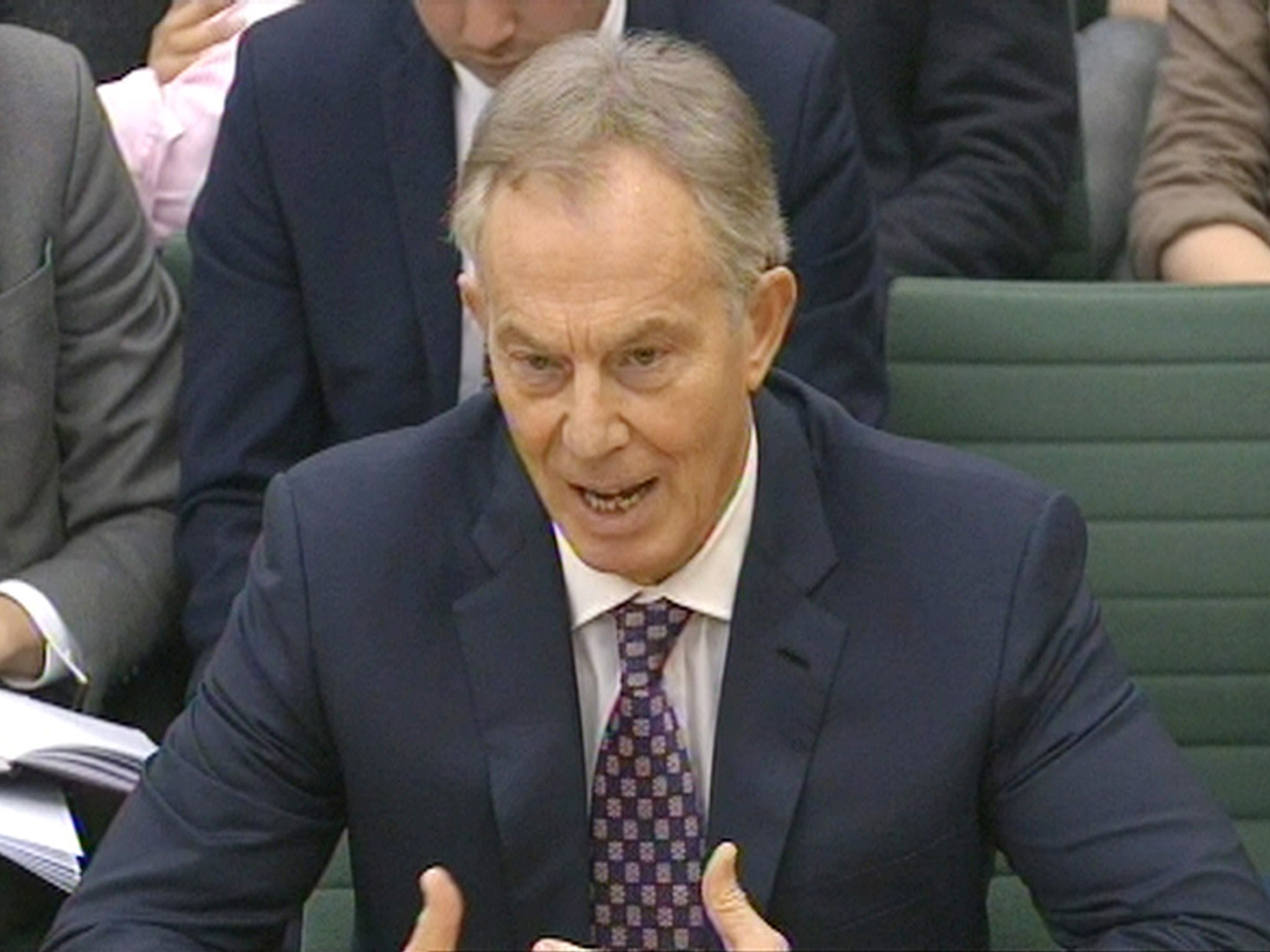Your support helps us to tell the story
From reproductive rights to climate change to Big Tech, The Independent is on the ground when the story is developing. Whether it's investigating the financials of Elon Musk's pro-Trump PAC or producing our latest documentary, 'The A Word', which shines a light on the American women fighting for reproductive rights, we know how important it is to parse out the facts from the messaging.
At such a critical moment in US history, we need reporters on the ground. Your donation allows us to keep sending journalists to speak to both sides of the story.
The Independent is trusted by Americans across the entire political spectrum. And unlike many other quality news outlets, we choose not to lock Americans out of our reporting and analysis with paywalls. We believe quality journalism should be available to everyone, paid for by those who can afford it.
Your support makes all the difference.Tony Blair has revealed the full transcript of his 2011 conversation with Libyan dictator Muammar Gaddafi, in which he urges him to get to a “safe place” in order to promote a peace process in the country.
The transcript of the call, which took place as a civil war erupted in Libya, has been handed to MPs as part of their inquiry into the UK’s policy in Libya.
The former prime minister had told the committee that the phone calls were his idea and that he had contacted Mr Gaddafi as “a concerned private citizen’. Mr Blair also confirmed he had cleared the phone calls with the US state department and David Cameron.
“The position of the leader is crucial, if he indicates that he wants this to occur now, and that he will stand aside and go somewhere safe I think this will resolve this peacefully,” Mr Blair tells Mr Gaddafi, according to the transcript.
“If he wishes this to happen I can take this message back to the people I have been talking to. There is a process of change that is going to take place – that has been made clear by the leader himself.
“He needs to signal acceptance of that change and he needs to stand aside to let that happen peacefully.”
During large parts of the conversation both speakers refer to Mr Gaddafi in the third person.
Read the full exchange between Gaddafi and Tony Blair below:

During the course of the call Mr Gaddafi also repeatedly denies there is any fighting going on in Libya and tells Mr Blair to come to the country’s capital to see the support for him.
During a Foreign Affairs Select Committee inquiry into the UK’s policy in Libya Mr Blair told MPs that his ultimate concern was for the situation of the country rather than Mr Gaddafi’s own health.
“It’s been presented as if I was trying to save Gaddafi. I wasn’t trying to ‘save Gaddafi’,” he told MPs on the House of Commons Foreign Affairs Committee.
“My concern was not for his safety, it was to get him out of this situation.”
The conversation’s transcript appears to show Mr Blair ultimately concerned with a peaceful transition in Libya and an attempt to avoid a protracted civil war.
Mr Blair said “two or three” phone calls had been made and that they all included roughly the same message. Mr Gaddafi ultimately refused to leave the country and his regime was overthrown rebels with the help of western warplanes.
The phone calls were originally revealed in Cameron at 10 by Sir Anthony Seldon, a new biography of the PM.
The former Labour leader’s time as prime minister was characterised by rapprochement with the Gaddafi regime and negotiations that led to the dictator giving up his chemical weapons.
The Libyan dictator was offered the support of Western oil companies to help extract its natural resources, in exchange for giving up its weapons of mass destruction and renouncing terrorism.

Join our commenting forum
Join thought-provoking conversations, follow other Independent readers and see their replies
0Comments